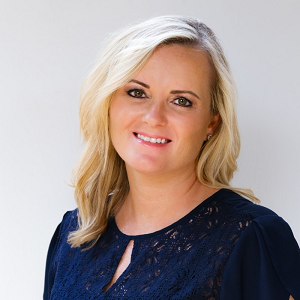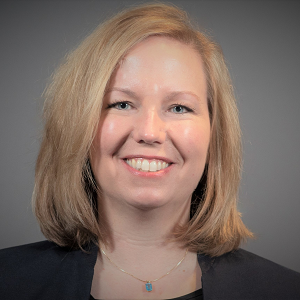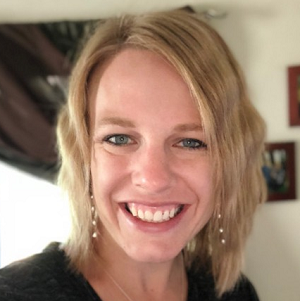Top-Level Takeaways
- Desert Financial and Affinity Plus credit unions offer education and skill development programs for emerging leaders.
- Both institutions prioritize comprehensive leadership training to prepare new leaders for future roles.
- Each credit union uses different methods, reflecting their distinct organizational cultures and goals, to achieve the same objective of fostering effective leadership.
Credit unions face a major challenge that goes beyond the balance sheet — the aging industry needs to inspire a new generation of leaders.
According to one study from 2019, the majority of credit union chief executives are age 56 or older. With that in mind, finding ways to engage, inspire, and educate the next generation of leaders is mission critical for cooperatives.
Upskilling, Tuition, Degrees, And More
Desert Financial Credit Union ($8.7B, Phoenix, AZ) launched InvestEd in 2020 to address skill gaps it had identified across the organization. The program provides credit union employees with 100% tuition coverage of up to $10,500 per year per employee for skills courses, pathways programs, and bachelor’s degrees.
In partnership with InStride, the program enlisted the help of Arizona State University (ASU) in hand-curating the pathways to help address the cooperative’s current and future challenges.
“The ASU Pathways programs is a collection of certificate programs and courses that are compiled to provide learners with the knowledge and credentials necessary to skill up and advance their careers,” says Carie Galati, Desert Financial’s chief human resources officer.
Currently, the credit union offers the following pathway programs:
- Business Analysis — Provides skills and technical experience to become a business analyst and drive business and systems strategy.
- Project Management — Teaches skills to become a project manager and effectively lead cross functional technical projects.
- Cybersecurity — Teaches skills to become a cybersecurity professional and protect organizations from data breaches and attacks.
Two new offerings are also available:
- Change Management — Focuses on enhancing strategic thinking skills, equipping participants to lead high-performance teams and make informed decisions during times of transition.
- Individual Excellence — Encourages strategic thinking in essential areas such as effective business communication, project management, and collaborative problem-solving.
CU QUICK FACTS
DESERT FINANCIAL CREDIT UNION
DATA AS OF 03.31.24
HQ: Phoenix, AZ
ASSETS: $8.7B
MEMBERS: 453,713
BRANCHES: 48
EMPLOYEES: 1,229
NET WORTH: 11.4%
ROA: 1.01%
InvestEd, which is administered through Instride, is intended to be both simple and flexible. After 90 days of service, employees receive a login to the InvestEd portal where they can choose from career-focused individual courses or full-degree programs to achieve their personal or professional goals.
Desert Financial does not require the courses or degree programs to be related to the financial industry. Employees simply register for classes inside the portal and speak directly to InvestEd or ASU if they have questions. The credit union’s benefits team is on standby to answer questions and ensure team members feel supported and equipped to participate in their courses. Participants also have their own group on Desert Financial’s Intranet where they can collaborate, study together, and support one another. Tuition is billed directly to DFCU, alleviating a major hurdle for many.
The program has also proven to be a huge driver in attracting and retaining talent at the Grand Canyon State cooperative.
“More than 70% of our jobs are filled with internal talent,” Galati says.

DFCU uses a combination of recruitment data, employee benefit surveys, and its overall employee engagement survey to measure success.
In terms of advice for others, Galati encourages managers and HR teams to actively engage with employees who are participating in these types of continuing education programs.
“You want to recognize their efforts and continue to motivate and inspire them, so they aren’t inclined to look elsewhere once they graduate,” she says.
DFCU has chosen not to claw back tuition costs if participants do choose to leave their employment. However, it’s HR and management’s job to continue to engage these emerging leaders to make them want to stay.
“If they do leave, that’s their decision,” Galati says. “But we rest easy knowing we’ve contributed to an education that both the individual and our community will benefit from.”
Personal And Professional Development Plans
Leaders at Affinity Plus Federal Credit Union ($4.2B, St. Paul, MN) learned the cooperative could be serving emerging leaders better when an employee came forward with an idea.

“We tried to fit them into current programming and quickly realized that wasn’t the right approach,” says Jennifer Klapak, director of human resources and leadership and development.
That’s when the credit union launched its Leadership Exploration and Discovery — aka LEAD — program. Unlike a typical emerging leader program that simply presents content on desired leadership characteristics, LEAD is designed and facilitated to help employees learn more about themselves and create personal and professional development plans that will help guide them into the future of their careers. The experience supports high-potential and high-performing employees by expanding their skills and facilitating leadership exploration in a safe and open environment.
“It’s a rare luxury to have the time and space for self-exploration,” Klapak says. “The focus on self-awareness is really the differentiator in this program.”
Whether participating employees go on to become formal leaders or not, what they gain from LEAD helps them improve how they are showing up in current and future roles.
Affinity Plus recently wrapped up its second full year of LEAD, according to the program’s co-developers Emily Baumgart, senior learning and development specialist, and Nicole Mass, human resources business partner.
The experience, which was intentionally implemented using an iterative design process to tailor programming based on participant needs in real-time, lasts seven months and includes eight virtually facilitated sessions. The sessions total approximately 20 hours plus two workshop days.
Running from September to April, the credit union has now had 50 participants complete the program in two different cohorts since launching in Fall 2022. Baumgart and Mass used multiple approaches, formats, and techniques to facilitate the experience, which included in-person workshops, virtually facilitated sessions, on-demand courses, and learning paths with pre-and post-work extension applications.
CU QUICK FACTS
AFFINITY PLUS FCU
DATA AS OF 03.31.24
HQ: St. Paul, MN
ASSETS: $ 4.2B
MEMBERS: 263,965
BRANCHES: 29
EMPLOYEES: 602
NET WORTH: 8.6%
ROA: 0.73%
Participants also engaged in experiential learning via Business Book Circles and an off-site puzzle room where they applied experience concepts by leveraging communication and collaboration skills, decision-making practices, and emotional intelligence in an environment that forced them to see situations from multiple perspectives to solve their way through the puzzle room.
“The Business Book Circles were a great way for participants to develop and practice their facilitation skills,” Mass says. “We facilitated the first session and shared some tips and tricks, then they took over the next two sessions.”
Employees who have completed LEAD report a high degree of success in applying the content and concepts into their current work:
- 95% felt they were better at making good decisions.
- 91% felt encouraged to grow and develop in their careers.
- 86% reported a better understanding of the business.
- 95% felt their skills at communicating to inspire success had improved.
- 95% felt they’d improved at adapting to change.

Perhaps most importantly, participants are more engaged and connected to the organization and their work. So far, 16 individuals (32%) have been promoted, six of whom went into leadership roles (team lead, supervisor, manager). Four others made lateral changes or had a change in focus of their existing role.
In terms of the future, Affinity Plus is planning to do another round of the program, and while no major changes are in the cards, the cooperative’s leaders are always open to fine-tuning based on feedback.
“We’re doing the post-survey now,” Baumgart says. “One of the potential changes we may make is adding more in-person elements to help participants and current leaders connect earlier in the process.”
Meanwhile, participant comments seem to demonstrate the power of the program best.
“We all have it [leadership] in us, but just didn’t know it until we went through this experience,” said one. Another offered, “You don’t need to be in a leadership role to lead.”